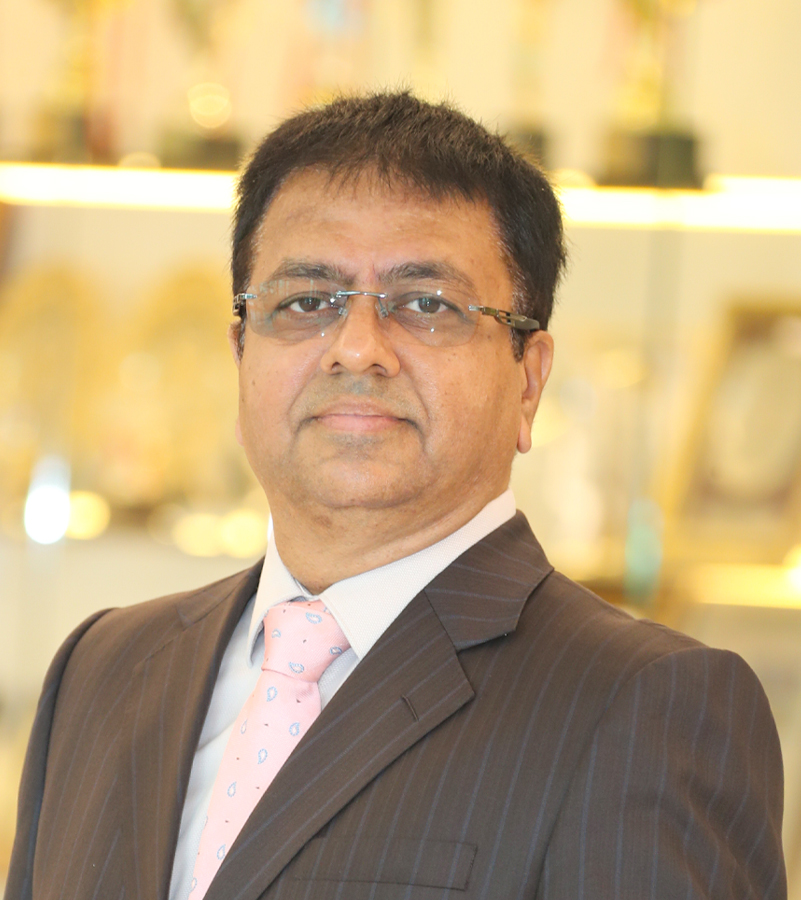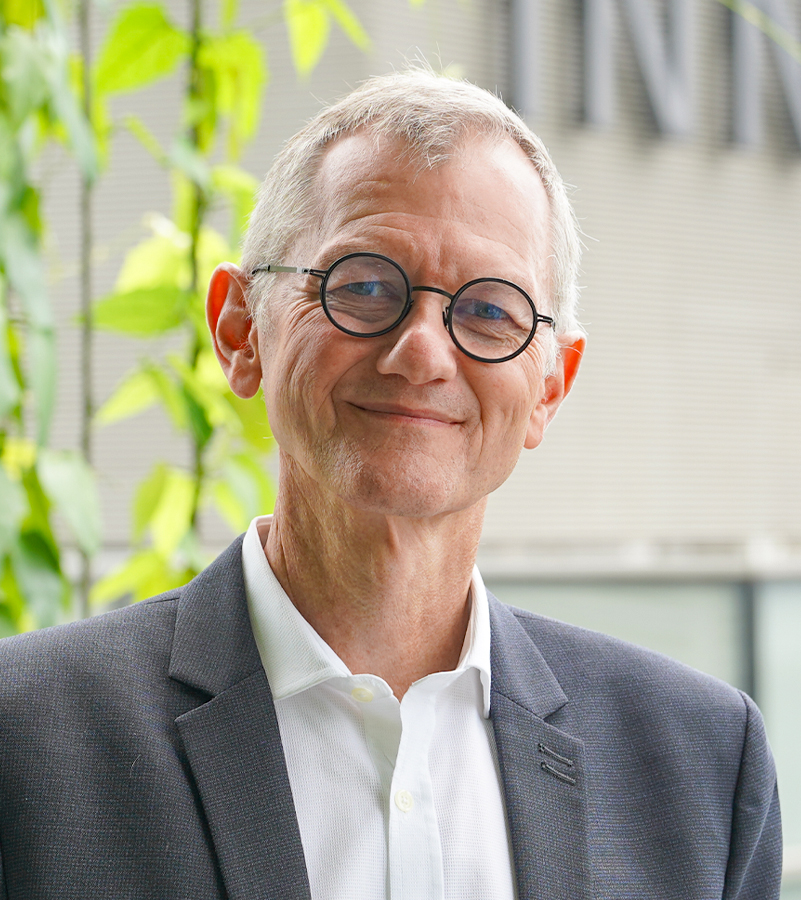"There are no boundaries for research. If we want to push the frontiers of knowledge and develop truly impactful solutions, we must collaborate across nations, disciplines, and cultures."
Could you give us an overview of the Global Schools Group?
Global Schools Group (GSG) is a premier global education provider with a network of 64 campuses across 11 countries, serving over 45,000 students from more than 70 nationalities. As an initiative of the Global Schools Foundation, GSG has grown to become the World’s Most Awarded Network of Schools, with over 600 international recognitions.
GSG’s mission is to nurture students into ethical, future-ready global citizens. Through its diverse academic offerings—including American Common Core and Next Generation Science Standards, International Baccalaureate, Cambridge IGCSE, British National Curriculum, and Indian Central Board of Secondary Education — the group champions a globally seamless education system that blends best practices, innovation, and inclusivity.
What are Global Schools Group’s keys to success?
Our success rests on four enduring pillars:
Academic Rigor & Holistic Education: GSG adopts a competency-based, student-centric approach that goes beyond content memorization to critical thinking and rote learning to practical applications to develop real-world problem solvers.
Technological Agility: We were early adopters of AI-enabled learning platforms, digital classrooms, and data-driven teaching interventions. Our SMART Campuses and tech-based learning systems exemplify this forward-thinking approach.
Global Integration with Local Relevance: While our SOPs ensure high-quality consistency across campuses, every school also embraces its local culture and context.
People-Driven Growth: From leadership development for over 100 global leaders to teacher and student exchange programs and robust performance appraisals, GSG invests deeply in people who shape the student journey.
What are Global Schools Group’s core programs and offerings?
GSG schools offer a rich portfolio of academic pathways that include:
IB PYP & DP, Cambridge IGCSE & A-Levels, Indian CBSE, and American Common Core and NGSS, as well as national curricula from their countries of domicile like Cambodia.
Global Exchange for Learning: Enabling cross-border collaboration on sustainability, cultural understanding, and leadership for students as well as for teachers.
Specialist Skills Studios: STEAM labs, Black Box theatres, Digital Art studios, TV and Radio studios, Maker Spaces, Design Studios, and AI-integrated learning platforms
Leadership & Values Programs: Focused on empathy, resilience, and ethical reasoning, all our schools offer programs that help students become critical thinkers and communicators. Some of our most popular programs include the Leadership Lecture Series, which provides students with access to industry experts through panel discussions; the Leader in Me series, where student ideas are showcased through exhibitions; and Kindness programs, which encourage students to appreciate diverse cultures and worldviews, fostering well-developed individuals.
Career Counselling and University Guidance: GSG schools focus on student progress from Grades 7 onwards through counselling sessions, which help determine their interests and help students choose a career path early in life. Later, during decisive years, the school counselors help students to apply for higher education universities through guidance counselors and industry experts.
These offerings are embedded within a digitally advanced ecosystem, such as the OWIS Digital Campus in Singapore, a model of green infrastructure and adaptive learning.
How does innovation shape Global Schools Group’s operations and impact?
At GSG, innovation isn’t something we talk about just to sound progressive—it’s really embedded in how we think, plan, and operate. It shapes everything from our classrooms to our campuses, and it’s what allows us to stay future-ready in a world that’s changing fast.
Take the way we approach learning. We’ve moved beyond the traditional lecture model. Students at our schools are often found working on real-world problems, asking questions, debating ideas, or even designing climate-action projects using real-time data. It’s this kind of inquiry-led, project-based learning that builds not just knowledge, but the skills to apply it meaningfully.
Then there’s technology—something we’ve embraced with both hands. Whether it’s AI tools that personalize learning for each student or systems that help track and support student well-being, we’re constantly looking at how smart technology can make education more responsive, more inclusive, and more exciting.
We also see sustainability as a key part of our innovation story. One example is our OWIS Digital Campus in Singapore, which runs on renewable energy and integrates smart building systems to reduce its environmental impact. We’re not just teaching sustainability—we’re living it, through our infrastructure and the way we operate.
And of course, learning doesn’t end with students. Our educators are continuously growing too. We support them through coding bootcamps, virtual mentorships, and leadership summits that bring together thought leaders from across the globe. It’s this commitment to lifelong learning—for both students and staff—that keeps us evolving, adapting, and hopefully, leading the way.
Within the sustainable-education sector, who are Global Schools Group’s peers, and what strengths set it apart?
We operate in a space that includes some incredibly reputable names—Nord Anglia, Cognita, GEMS Education—all doing excellent work around the world. We hold them in high regard. That said, we do believe Global Schools Group brings something unique to the table.
For one, our academic offerings are remarkably diverse—not just in terms of curriculum, but also in how we personalize learning for students across very different geographies. Families who move between countries can rely on us for continuity without compromising on quality or flexibility.
Another strength lies in our consistency. Thanks to our structured processes and smart digital systems, we’re able to maintain a high standard of education across every campus—be it in Dubai, Tokyo, or Kuala Lumpur. That consistency is something we’ve become known for.
And then there’s our approach to sustainability. It’s not just part of our philosophy—it’s built into the way our schools function. Whether it’s energy-efficient building design, solar power, or smart water systems, we’re taking tangible steps to ensure that our schools reflect the same environmental values we teach in the classroom. So while we share the stage with many great institutions, these are the areas where we feel we lead with distinction.
How does Global Schools Group collaborate with schools, communities, policymakers, and educators?
We believe in co-creation—not imposition, which also explains the earlier point I made on Global integration with local relevance.
It’s a principle that runs deep across all our campuses. We don’t just plant a flag in a new country and tell schools how things should be done. Instead, we listen, we observe, and we work with local stakeholders—whether they’re educators, parents, or community leaders—to create something meaningful together.
Take our schools, for instance. Each one carries the DNA of the Global Schools Group, yes—but they’re also deeply rooted in the culture of the place they’re in. That balance allows students to feel connected globally while still feeling a strong sense of belonging locally.
We do the same with communities. Whether it’s tree-planting initiatives, student-led social campaigns, or cultural festivals like Chinese New Year, Diwali, or Water festival, we encourage our schools to be a vibrant part of the neighborhoods they serve. These aren’t “extra” programs—they’re part of the learning journey. Our initiatives, like the Global Cultural Centre, are a melting pot of many art forms from different parts of the world.
On the policy side, we’ve had the opportunity to work alongside governments in countries like India, Singapore, and the UAE. We have also collaborated with private enterprises to enhance student learning, such as the Nikon Studio of Photography and the Global Schools Sheykhar Ravjiani School of Music, which provide students with valuable skills. These collaborations help us stay aligned with national education goals, and in many cases, contribute ideas for reform—especially around technology and teacher training.
And speaking of teachers—they’re at the center of it all. We’ve invested heavily in their development through global training platforms, leadership pathways, and exchange programs. They don’t just teach curriculum—they contribute to it. Many of them collaborate across borders, sharing what works and learning from one another. It’s a truly global faculty in every sense.
So yes, collaboration for us isn’t a checkbox. It’s a way of life.
What’s your key message to the audience of The Diplomat about Global Schools Group?
To the readers of The Diplomat, we offer this message: Global Schools Group is not just preparing students for tests or university admissions—we are nurturing young minds for an uncertain and evolving future. At a time when education faces profound disruption, GSG provides a model that is adaptable, inclusive, and forward-looking.
We believe that the next generation must be equipped not just with academic knowledge, but with empathy, resilience, and a sense of purpose. That is the promise we make to every family that becomes part of the GSG community: to educate children who are not only prepared to lead, but inspired to make a difference.
As education becomes increasingly borderless and technology-driven, our commitment is clear: to nurture ethical, adaptable, and compassionate leaders for an unpredictable world. In every classroom we run, in every child we teach, we are planting seeds not just of knowledge—but of a better future.



















